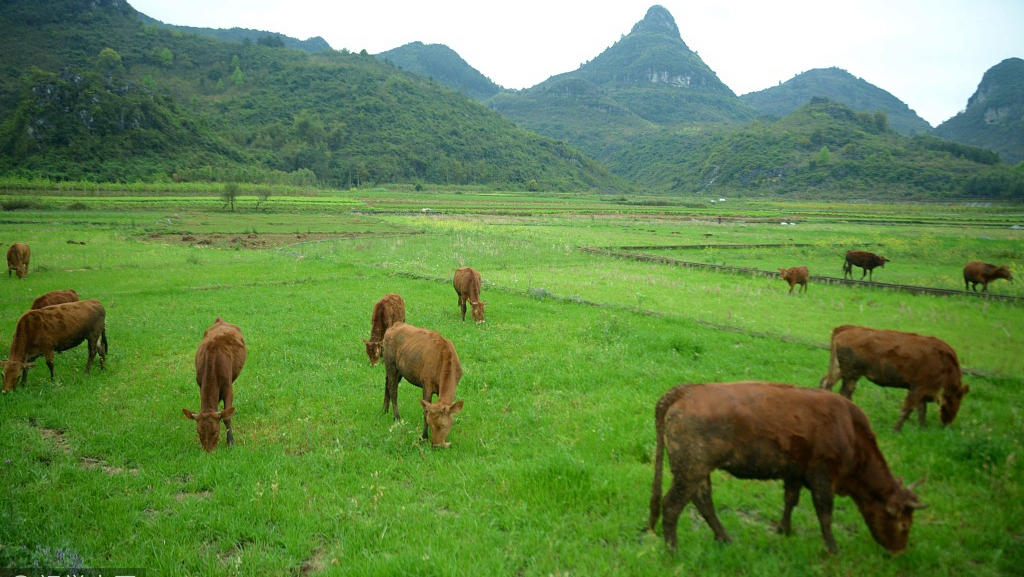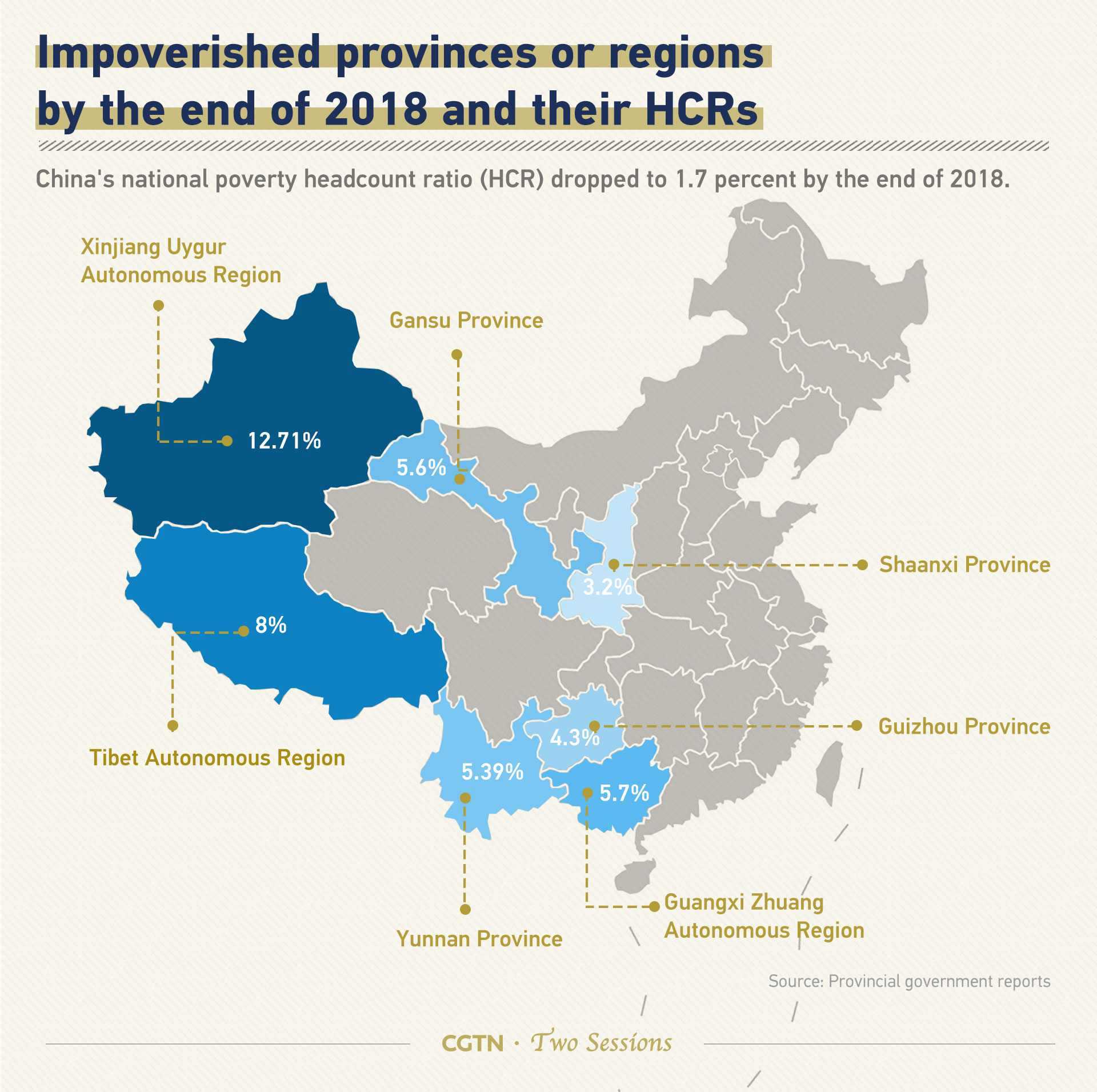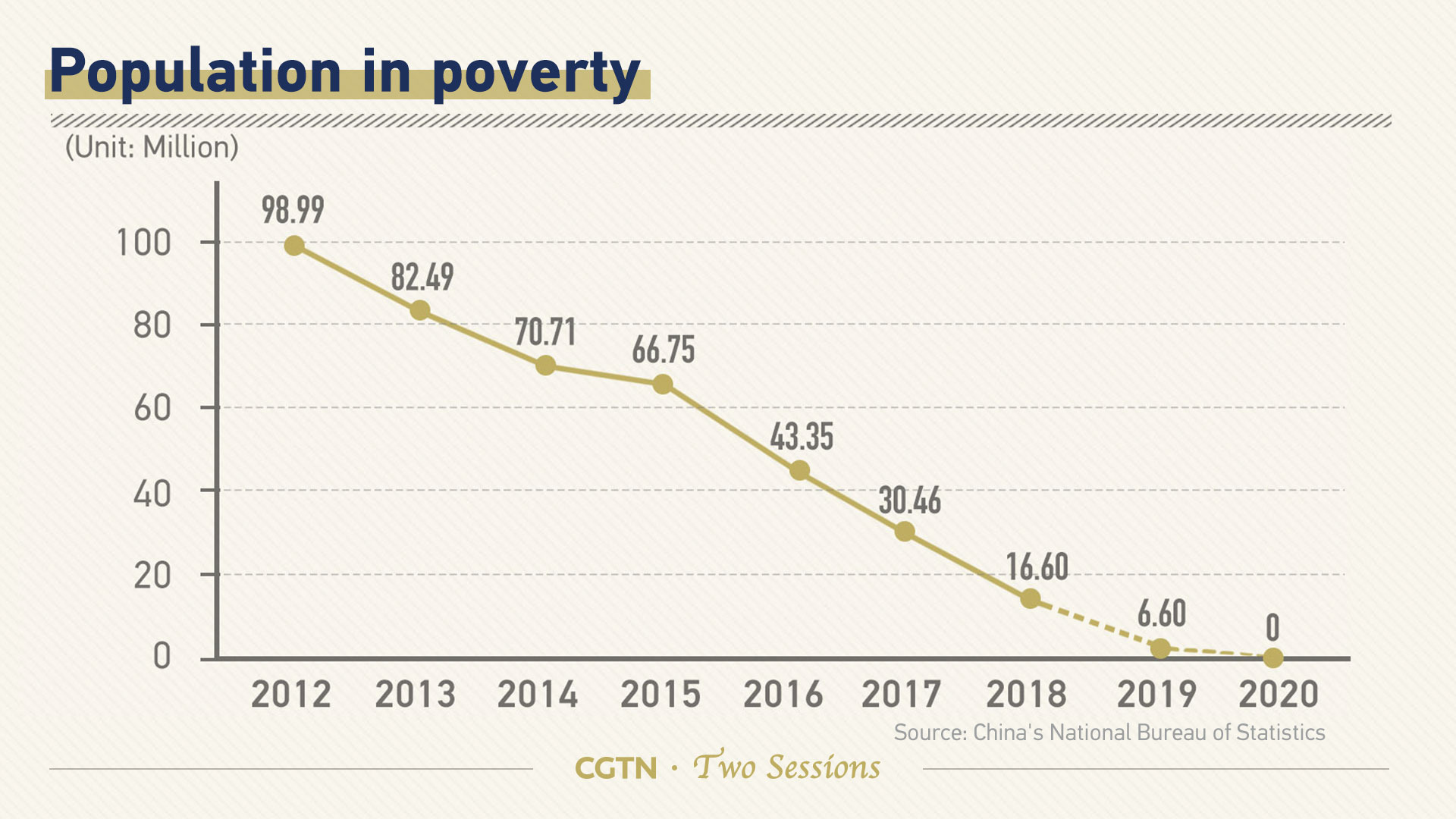
Opinion
08:13, 24-Mar-2019
'The Way Forward': A book to understand China's fight against poverty
Updated
10:16, 24-Mar-2019
Alex Chan

Editor's note: Alex Chan is a PhD student in Diplomacy at Peking University. Previously, he graduated in China Studies from Peking University and International Relations from the London School of Economics. The article reflects the author's opinion, and not necessarily the views of CGTN.
China provides unique cases for poverty reduction and has many distinguished examples to be shared with the rest of the world. The book "The Way Forward: Stories of Poverty Reduction in China," launched last year, contains 22 most impressive stories of China's battle against poverty. The book revolves around some of the best practices of poverty relief efforts, from e-commerce, East-West cooperation, green economy and environmental protection to cooperation with international institutions.
E-commerce has allowed more inclusive forms of business interaction, allowing people from across the country, including farmers, to commercialize their local products. In fact, the story of Yang Shaowu is an extraordinary case of social entrepreneurship. Besides providing equipment and support to various bee farmers in the Heilongjiang area, Yang and his business partners were able to promote northeast China's black honeybees through online platforms, such as JD.com. Up to July 2016, 400,000 yuan was raised thanks to crowdfunding initiatives to support beekeepers, among which 12,000 yuan was donated to poor rural households.

China's poverty alleviation experience also consists in bridging East-West disparity. Such collaboration, initiated two decades ago, has been included in the government efforts to reduce poverty and inequality in central and western regions. In 1997, when Xi Jinping was serving as deputy secretary of the CPC Fujian Provincial Committee, he visited Ningxia Hui Autonomous Region. There, realizing that the living conditions of Ningxia's Xihaigu region were unfit for habitation, he proposed the relocation of the local population to another area with richer resources as well as a more reliable water supply.
Since then, Fujian Province has set up a remarkable example of East-West cooperation. The Fujian provincial government has set up over 20,000 wells in Ningxia, 385 kilometers of new roads while helping the autonomous region to build 236 schools and 323 medical centers. East-West cooperation has since then become a model for other wealthier provinces to do the same in order to participate in the national poverty reduction efforts. Pro-poor policies, through East-West pairing-off cooperation, have been highly effective, accelerating the pace of poverty reduction in the central and western regions and promoting harmonious regional and national development.
Another story concerns the efforts to fight poverty through combating desertification, considered as one of the greatest challenges for our planet. Kubuqi Desert, located in Inner Mongolia Autonomous Region, has been damaged due to increasing population and large-scale immigration. In recent years, the government, with the assistance of the private sector, restored over 6,000 kilometers of desert, receiving also recognition by the United Nations Environment Program and the United Nations Convention to Combat Desertification.
In three decades, the green economy in the Kubuqi Desert area, based on ecology restoration, animal husbandry, pharmaceuticals, clean energy and eco-tourism, is now worth more than 30 billion yuan (4.5 billion U.S. dollars).
The Chinese government has also been increasingly working with international institutions such as the World Bank. Such cooperation facilitated the establishment of the International Poverty Reduction Center in 2005, a joint project between the United Nations Development Program and other international organizations. With the World Bank, the government promoted a community-based approach to sustainable development in rural areas.

At the International Forum on Reform and Opening-Up and Poverty Reduction last year, Liu Yongfu, director of the State Council Leading Group Office of Poverty Alleviation and Development, pointed out four main crucial factors for China's poverty reduction efforts. China's strong leadership and the importance President Xi Jinping attributes to fighting poverty are certainly the founding bases for China's poverty reduction efforts.
Furthermore, China's clear goal of reducing overall poverty by 2020 and achieve the UN 2030 Agenda for Sustainable Development are an enormous stimulus, which is accompanied by precise strategies as well as a pragmatic set of policy initiatives, coordinated by the national government and implemented at the regional and local level.
During the speech at the conference celebrating 40 years of reform and opening-up, President Xi shared his thoughts on the achievements made in improving people's wellbeing. In 40 years, 740 million Chinese people have been lifted out of poverty, which reduced the poverty headcount ration by 94.4 percentage points. President Xi went on to say that China has built the world's largest social security system with the basic old-age pension covering more than 900 million people as well as medical insurance covering over 1.3 billion people.
In 40 years, not only has China solved the issues of poverty, shortage and hunger, the country also “has maintained its social stability over a long period, making it one of the countries that provide the greatest sense of safety in the world.”
China's poverty reduction experiences, as well as reform and opening-up, provide a good reference for policymakers in other countries as well. In fact, they can learn from China and “adjust the lessons to their own specific conditions and own specific nature of their poverty challenge,” wrote Bert Hofman, the World Bank country director in China.
According to Dr. Vincent Martin, FAO representative in China and the DPRK, "The Way Forward: Stories of Poverty Reduction in China" is a must-read book, which provides with the answers to the most challenging issues facing societies across the world and deserves to be widely shared.
(The poverty-stricken households with the establishment of the file have signed an agreement with a company to raise cattle, using the county financial agriculture-related funds to purchase high-quality beef cattle from the company, and then hand it over to the company, Lai Bin, Guang Xi Zhuang Autonomous Region, March 18, 2019. /VCG Photo)
(If you want to contribute and have specific expertise, please contact us at opinions@cgtn.com.)

SITEMAP
Copyright © 2018 CGTN. Beijing ICP prepared NO.16065310-3
Copyright © 2018 CGTN. Beijing ICP prepared NO.16065310-3